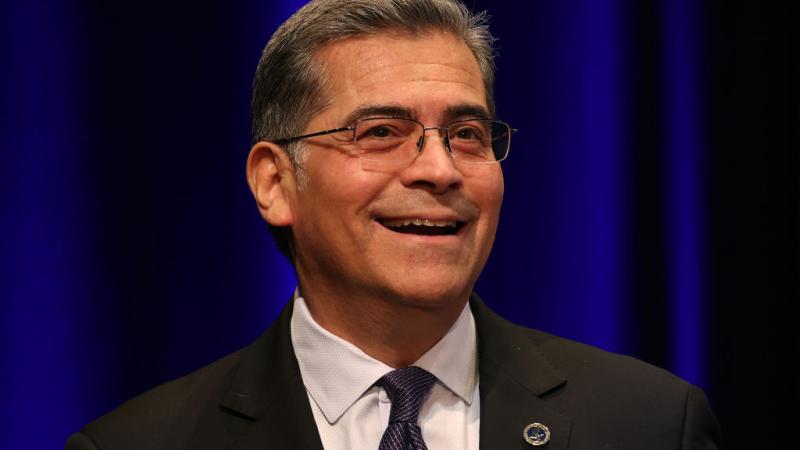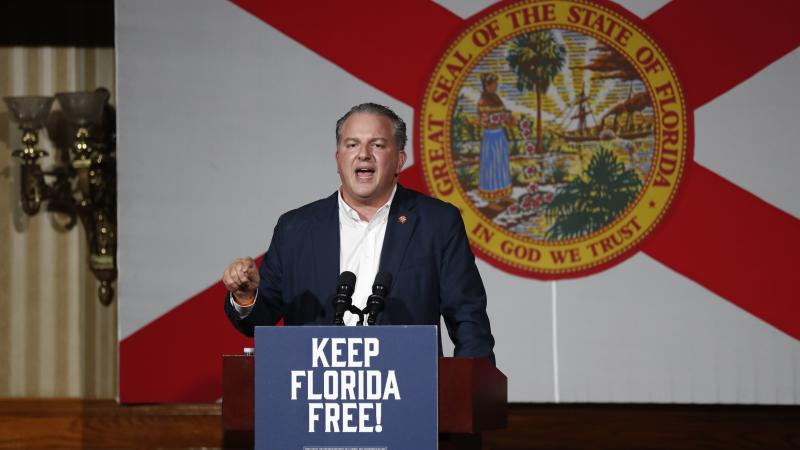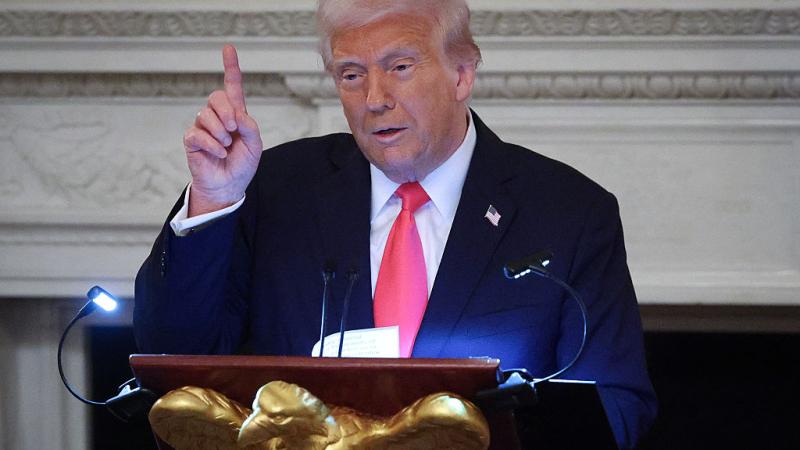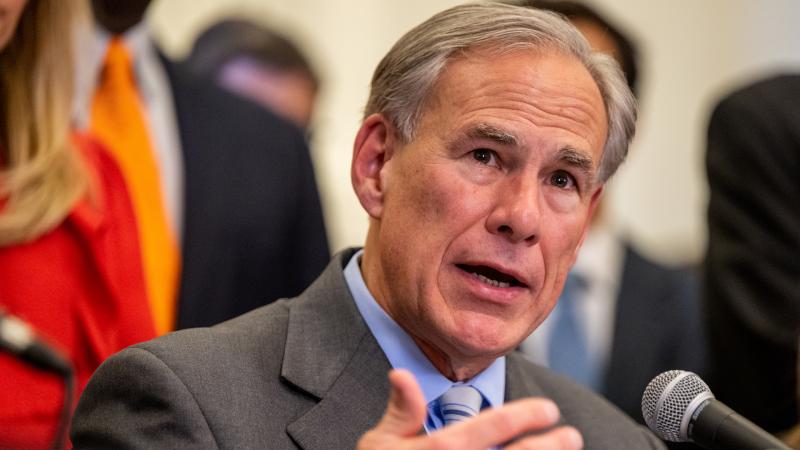Record number of election bills enacted as Republican-led states outpace Democratic states
At least 3,505 bills and resolutions regarding elections have been introduced in state legislatures this year.
A record number of election bills have advanced through state legislatures during this year's sessions as Republican states outpace Democratic states with election administration priorities.
At least 3,505 bills and resolutions regarding elections have been introduced in state legislatures this year. Many of the bills working through state legislatures prioritize election integrity, with the majority of them being introduced by Republicans. However, even in Democratic-led states, which usually focus on voter access, fewer election bills have been introduced in their legislatures.
According to Ballotpedia’s State of Election Administration Legislation Spring Report that was released last month, the 3,500-plus bills and resolutions regarding elections that had been introduced in the legislatures as of March 11, is nearly the same number of election bills that have been pushed in each of the last two years, and has already surpassed 2022.
GOP legislators and Republican trifecta states – in which the governor and both legislative chambers are the same political party – are outpacing their Democratic counterparts in introducing election bills.
There are 23 GOP trifecta states compared to 15 Democratic ones, and Republicans hold 55.7% of state legislative seats in contrast to 43.7% for Democrats.
As of March 12, GOP trifecta states had passed 27 election bills, compared to seven in Democratic trifecta states and three in divided governments, totaling 37 bills. The 37 total election bills passed by that point in the year is eight more than this time in 2024 and one more than there were in mid-March in 2023.
Of the total 3,505 bills, 1,055 of them were Republican-sponsored in GOP trifecta states, compared to 693 Democratic-sponsored election bills in Democratic trifecta states.
Republicans have focused on requiring proof of citizenship for voter registration, ending no-excuse absentee voting, banning ranked-choice voting and changing the ballot-initiative process to require more signatures.
Democrats, by comparison, have prioritized the expansion of same-day and automatic voter registration, automatic mailing of absentee ballot request forms, increasing the number of ballot drop boxes and authorizing ranked-choice voting.
Louisiana is the only state that has yet to begin its state legislative sessions, and Utah and Wyoming have already adjourned for the year.
Ballotpedia marquee staff writer Joseph Greaney told Just the News on Thursday that because mores state governments are under Republican control than Democrat, "the fact that there are more Republican-sponsored bills related to elections doesn't necessarily indicate that Republicans are more focused on changing election laws than Democrats are.
"In fact, a very rough comparison might indicate that Democrats—who hold 43.7% of seats and have introduced 38.2% of election bills so far this year (-5.5% vs. expected) — are more active than Republicans — who hold 55.7% of seats and have introduced 49.4% of election bills (-6.3% vs. expected)," Greaney continued.
"For a number of reasons this type of comparison requires many disclaimers and is not actually all that helpful, including because it ignores all bills with bipartisan or other sponsorship, and because the number of bills is actually not all that great of a proxy for actual activity, i.e. new laws."
However, "so far this year Republican-sponsored legislation has been much more likely to become law (4.5% of introduced bills have been adopted) than Democratic-sponsored legislation (0.9%), but bipartisan legislation is adopted more frequently than either (8%)," Greaney added.
"While this is interesting, it also requires disclaiming, most notably that these numbers are highly subject to legislative calendars, and some states with Republican trifectas (e.g. Utah and Wyoming) are already done for the year. What this breakdown looks like at the end of the year will be more instructive."
Greaney noted that the main takeaway from the report is that "Republican lawmakers appear to have more of a shared focus with respect to policy changes across states than Democrats do. In other words, Republican lawmakers are introducing more similar legislation in multiple states, while Democratic lawmakers seem more focused on the laws and policies in their given state."
The five categories in which Ballotpedia broke down the 3,505 bills are: absentee/mail-in voting, ballot access for candidates and ballot initiatives, ranked-choice voting, voter registration and voter ID.
Across 43 states, 308 bills and resolutions have been introduced in state legislatures related to absentee/mail-in voting.
One of the bills regarding absentee voting was Kansas Senate Bill 4, which requires absentee ballots to be received by election officials by 7 p.m. on Election Day, rather than the prior law that allowed ballots postmarked on Election Day to be received up to three days later. Kansas Democrat Gov. Laura Kelly vetoed the bill, but the Republican majority in both chambers overrode her veto last week.
In Utah, House Bill 300, which ends all-mail voting and requires voters to request absentee ballots, passed both GOP-led chambers of the state legislature last month. The bill also includes new voter ID requirements, strengthens voter registration database maintenance procedures and creates enhanced ballot tracking and signature verification processes. GOP Gov. Spencer Cox signed the bill into law last week.
Among 45 states, there are 285 bills regarding ballot access for candidates. Also, 130 bills have been introduced across 31 states that would alter how measures and initiatives get on the ballot.
In New Jersey, a bill was enacted in February by the Democratic trifecta government that increases the general election candidate petition signature requirement from 2% to 5% of the entire vote cast for General Assembly members at the prior general election within the district that the nominees are seeking election. Other signature requirements for various elected offices were also increased.
In the GOP trifecta state of Missouri, House Bill 575 has passed in the lower chamber and would require those who circulate petitions be U.S. citizens, at least 18 years old, registered with the secretary of state, and Missouri residents or present in the state for 30 consecutive days. The bill, which is now in the state Senate, also makes the penalties for petition signature fraud more severe.
A total of 48 bills that have been introduced this year would authorize ranked-choice voting, compared to 23 that would ban or repeal the election system.
The Democratic Virginia state legislature passed a bill that would have created new guidelines and reporting requirements regarding ranked-choice voting. But GOP Gov. Glenn Youngkin vetoed it. Meanwhile, the GOP trifecta states of West Virginia and Wyoming and the divided government of Kansas are the most recent to ban such voting, which occurred last month, bringing the total number of states prohibiting it to 14.
Across 44 states, 505 bills have been introduced regarding voter registration.
In Democratic trifecta state of New York, a bill was introduced in February that would allow same-day voter registration during primary, general or special elections, or early voting. People registering to vote would have to provide ID with proof of residence and sign an affidavit regarding their voter eligibility.
Wyoming, with a Republican trifecta government, enacted a law last month that requires proof of citizenship in all elections, including federal.
There have been 194 bills introduced that are related to voter ID.
On Tuesday, Wisconsin voters chose to enshrine a statewide voter ID requirement into their state constitution.
Last week, Utah enacted a law that requires voters casting absentee ballots to provide the last four digits of their social security number or driver’s license number, or a photocopy of eligible ID with a returned ballot. However, if they cannot meet the requirements, then they must vote in-person.
A bill in the Republican trifecta state legislature of Montana would allow concealed carry permits and student ID’s to be used as voter ID. The bill has passed the state Senate and is currently in the state House.















